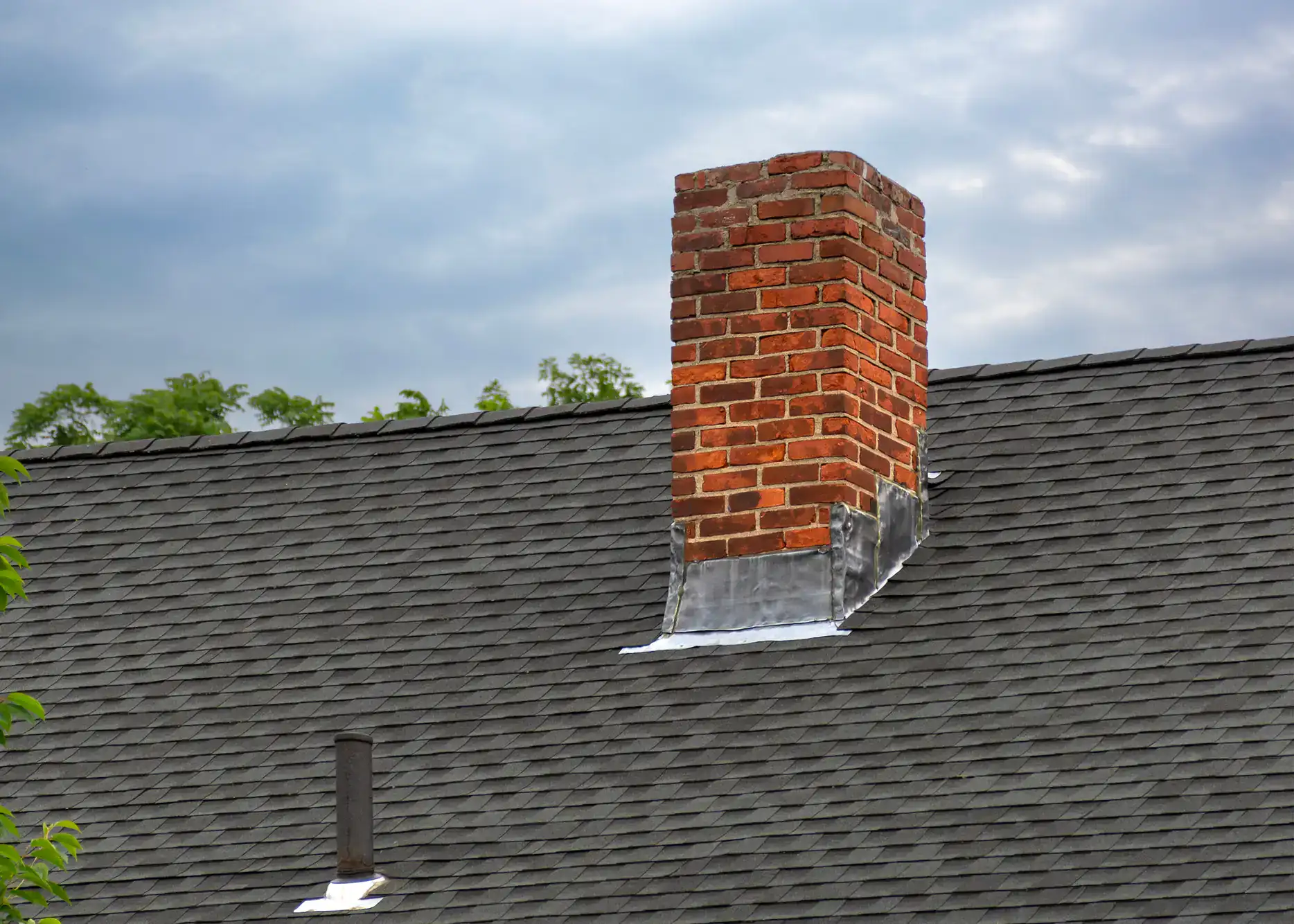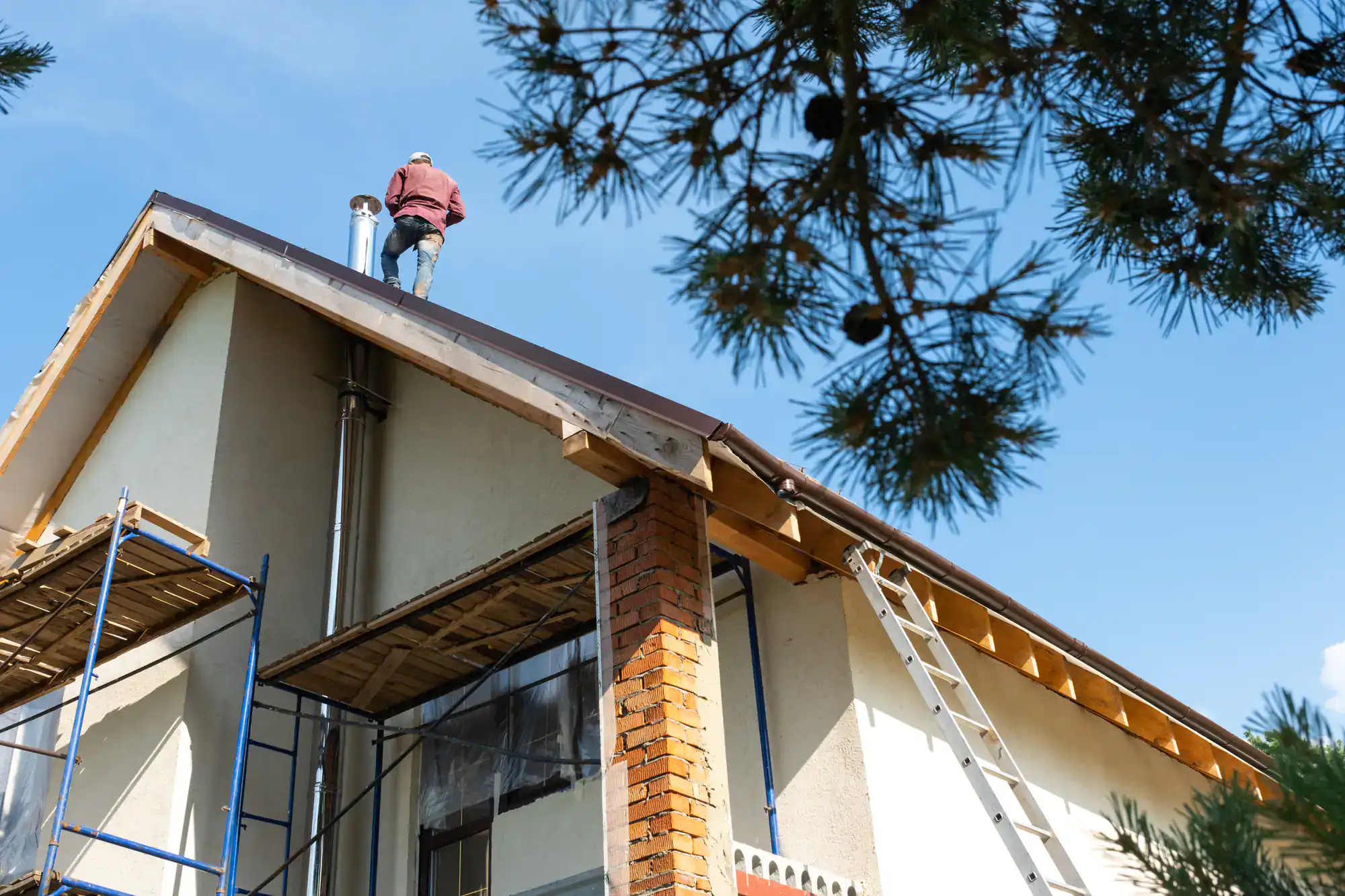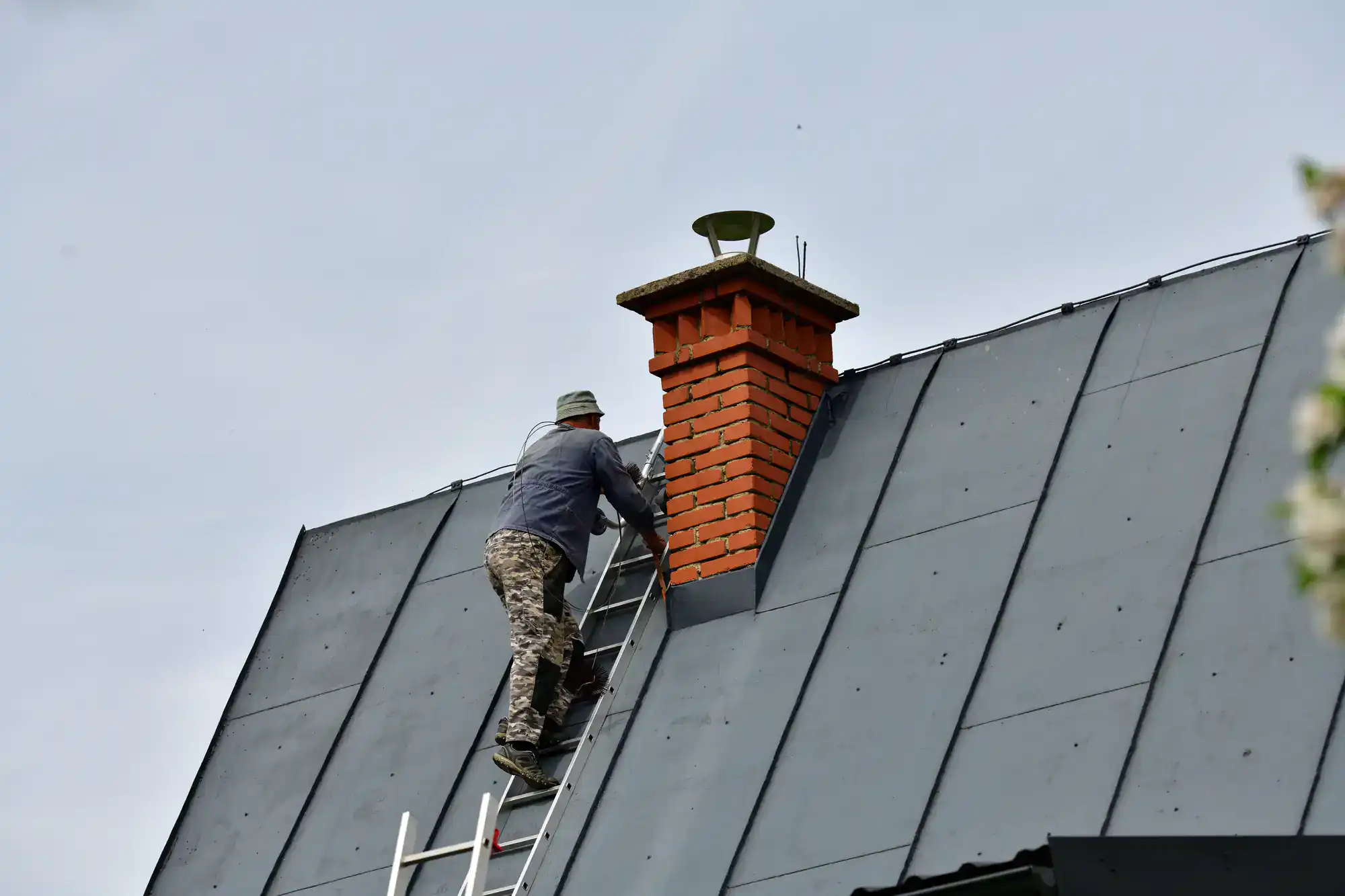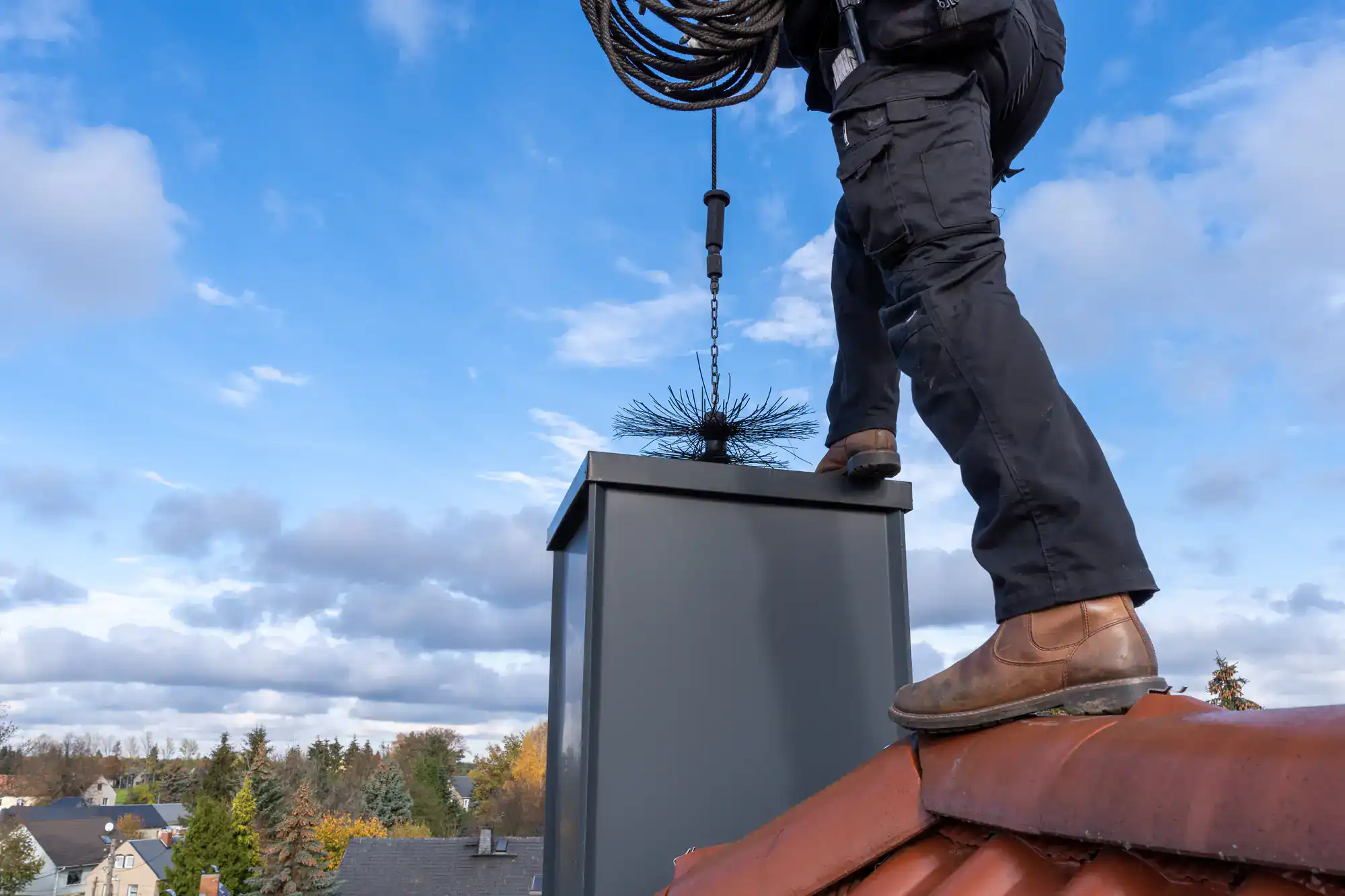
Hear from Our Customers

You’ll never worry about chimney fires or carbon monoxide poisoning again. Your fireplace draws properly, your energy bills stay reasonable, and your home stays safe through every Long Island winter.
When your chimney’s professionally maintained, you actually get to enjoy those cozy nights by the fire instead of stressing about what might go wrong. No more strange smells, no more smoke backing up into your living room, no more wondering if that creosote buildup is turning your chimney into a fire hazard.
Your home’s value stays protected, your family breathes cleaner air, and you avoid those emergency repair bills that hit neighbors who skip regular maintenance. Clean chimneys also improve your fireplace’s efficiency, which means you use less wood and save money on heating costs.
We’ve been keeping Selden chimneys safe since 2001. While other contractors come and go, we’ve stayed right here in Suffolk County, learning how the salt air and coastal weather affect your chimney differently than inland properties.
You’ll work with the same local team that’s handled thousands of Long Island chimneys. We know the building codes, we understand the weather patterns that cause problems here, and we’ve seen every type of chimney issue that affects homes from Hawkins Road to Blue Point Road and everywhere in between.
When you call us, you’re getting contractors who live in your community and stand behind our work long after the job’s done. No fly-by-night operations or crews from out of state—just local professionals who care about our reputation in the neighborhood where we work and live.

We start with a complete inspection of your chimney system, from the firebox to the cap. You’ll get photos of everything we find—no hidden problems discovered later, no guesswork about what needs attention, no surprise bills after we start working.
If cleaning’s needed, we protect your home properly and remove all the creosote, debris, and blockages using professional equipment. The salt air here in Selden can accelerate certain types of buildup, so we know exactly what to look for and how to handle it safely.
Every job ends with a final safety inspection. You’ll know your chimney meets all safety standards, and we’ll give you a realistic maintenance schedule based on how you actually use your fireplace—not some generic recommendation that doesn’t fit your situation or budget.

Ready to get started?
From routine chimney sweep and cleaning to complete rebuilds, we handle everything your chimney needs. Chimney inspection services, liner installation, chimney cap and crown repair, masonry tuckpointing, waterproofing—whatever keeps your system running safely and efficiently.
Here in Selden, we see specific problems caused by Long Island’s coastal climate. The salt air accelerates certain types of deterioration, and the freeze-thaw cycles can crack masonry faster than you’d expect. We know which materials hold up best in your area and how to prevent the most common local issues before they become expensive emergencies.
Spring chimney inspections catch winter damage early, while fall maintenance gets you ready for heating season. We work around your schedule and budget, prioritizing safety-critical repairs while helping you plan for longer-term needs that aren’t urgent but should be addressed eventually.

It depends on how much you use your fireplace. If you burn wood regularly through the winter, you’ll need annual cleaning. Occasional users might go two years between cleanings, but you should still get an annual safety inspection regardless of usage.
Gas fireplaces need less frequent cleaning but should be inspected yearly to check for proper ventilation and remove any debris or animal nests that could block the flue. Oil burner chimneys typically need cleaning every 2-3 years, while fireplace chimneys should be cleaned after every 50-100 fires.
The National Fire Protection Association recommends annual inspections because even unused chimneys can develop problems from weather, animals, or structural settling. We’ll give you a realistic schedule based on your actual usage patterns, not a one-size-fits-all recommendation that doesn’t make sense for your situation.
White staining on your chimney’s exterior (called efflorescence) means water’s getting in and needs immediate attention. This is especially common in Selden because of our coastal climate. Rust on your damper or firebox, water leaks around the fireplace, and smoke entering your room instead of going up the chimney are all red flags.
If you smell strong odors from your fireplace when it’s not in use, or see animals or birds around your chimney, don’t wait. These problems create serious safety hazards and expensive damage if left untreated. Other warning signs include trouble starting fires, soot falling into your fireplace, and cold air coming down the chimney.
The freeze-thaw cycle here on Long Island can cause rapid deterioration once water gets into your chimney system. What starts as a small crack can become major structural damage in just one winter if it’s not addressed quickly.
Repair costs range from around $160 for minor fixes up to $15,000 for major structural work, depending on what needs fixing. Simple cleaning typically costs much less than liner replacement or masonry rebuilding. We give you upfront pricing before any work starts, so there are no surprises.
Minor repairs like chimney cap replacement or basic flashing work cost significantly less than major projects. The key is catching problems early through regular inspections—small issues are always cheaper to fix than emergency repairs that can’t wait.
We’ll prioritize safety-critical repairs and help you plan for any longer-term maintenance needs that aren’t urgent but should be addressed eventually. Our goal is to keep your costs reasonable while ensuring your family’s safety and your home’s protection.
Yes, we handle both residential chimney services and commercial chimney maintenance throughout Selden and Suffolk County. We’ve been serving both types of properties for over 20 years, so we understand the different requirements and complexities involved.
Commercial properties often have multiple flue systems, different building codes to meet, and more complex maintenance schedules. Residential properties might have wood-burning fireplaces, gas inserts, or oil heating systems—each with specific maintenance needs.
Whether it’s a single-family home’s fireplace chimney or a commercial building’s heating system, we follow the same thorough inspection and maintenance process. All work meets local building codes and safety standards, and we provide the documentation you need for insurance and regulatory requirements.
Chimney cleaning removes creosote, soot, and debris from inside your chimney to prevent fires and improve airflow. Chimney inspection examines your entire chimney system to identify safety issues, structural problems, or needed repairs—it’s like a physical exam for your chimney.
You need both services, but not necessarily at the same time. We include a basic inspection with every cleaning, but detailed safety inspections are more comprehensive and should be done annually even if cleaning isn’t needed that year.
During inspection, we check the chimney structure, flue liner, cap, crown, flashing, and all components from the firebox to the top. You’ll get a detailed report with photos showing exactly what we found and recommendations for any needed work, with no pressure to do unnecessary repairs.
Absolutely. We install chimney caps, chimney liner installation, crowns, and all other chimney components. Caps are essential for keeping water, debris, and animals out of your chimney, while liners protect the chimney walls and improve safety and efficiency.
We use high-quality materials that hold up well in Long Island’s coastal climate. Stainless steel liners resist corrosion from salt air, and properly installed caps prevent the water damage that’s especially common in this area due to our weather patterns.
All installations meet local codes and manufacturer specifications. We’ll explain which options work best for your specific situation and give you upfront pricing for the complete installation, including any permits or inspections required by Suffolk County.
Other Services we provide in Selden